I only met Elizabeth Weil a few months ago, but she quickly has become one of my biggest inspirations because of how she’s so incredibly active and involved in her job and her kids’ lives. Her story is just incredible—from venture capital and Twitter to angel investing, being a mom of three, and running a letterpress business out of her garage.
She’s got the mom duties, the business owner duties, and then investor duties and meeting with clients. I know many of us are juggling a lot of responsibilities and often feeling overwhelmed. If you’re looking to get inspiration and tips on balancing it all, this episode is going to give you a lot of that insight.
Below is an excerpt from our conversation—for the full interview, be sure to listen to the episode.
Let's start with your backstory. How did you get to where you are today?
Jenna: You’re a mom of 3, an ultramarathon runner, you get up at 5am willingly to exercise, you’re a private angel investor and you run Paperwheel—a letterpress company from your garage. I’d love for you to start by telling us your backstory and how you got to where you are today!
Elizabeth: I had always been a runner. My mom and I actually started running when I was nine years old because I needed to learn my states and capitals in fifth grade. And the only time we had together was a few minutes before dinner every night. So we'd go out in the neighborhood, we'd run three miles together and I'd recite my states and capitals, so that way my gateway drug. And my mom was a single mom and on our weekends together we would end up doing local fun runs and things like that because it was a cost effective way to get some fun get run in and see our friends in the community. So that's where that piece all started.
And I'd always been a tinkerer. I started a woodworking business in my garage in fourth grade and I sold pins. So I cut these holiday characters out of thin wood for each holiday. I'd come up with a new creation and then I would paint them after I sanded them and I would put them on my mom's staff room table and sell them each for $10. Every holiday I would pocket away some money and then come up with another idea for the next holiday. And I was a major saver. My mom was one of those people that always made me pay for my own supplies too. So I very, very early had to learn how the whole, the whole business worked.
I majored in economics and at Stanford, economics felt a lot more theoretical to me. So I say that I'm proud of having that degree on my wall, but I was an accidental economics major because what I really loved and found later on and why I ultimately got my masters in engineering was this department called management science and engineering. And I got into a program called the Mayfield Fellows program. And that was this nine month intensive opening your eyes to Silicon Valley startups—the tech community. And that was really what changed my trajectory from going to an investment banking job or a consulting career. Instead I saw how fun and fulfilling it was to work in a startup where you were young, you can grow, you might not know everything, but no one knows everything in a startup and you're building as you go. And as they say, you're trying to assemble an airplane while you're mid flight. Tons of fun. Really enjoyed that.
What was your first job out of Stanford?
Elizabeth: My first job out of Stanford was actually at a venture capital firm called Menlo Ventures. My job was to research interesting companies and businesses that were tech companies and call them, find out if they were raising money. I would give our pitch and my job was to figure out what companies were interesting and bring them into the partnership.
So after my role at Menlo, I went to another venture capital firm. Really was liking that motion and there was a later stage firm and we made an investment in a company called Twitter, which was not in late stage investment, but instead an early stage one.
And then a friend of mine joined and she mentioned that there was an open role and instead of me taking it, I sent my husband over to go and take that role. He started the analytics team. We had met at Stanford on the triathlon team actually, so we were already married and he took this job at Twitter, absolutely loved it, worked around the clock and I got to know the business and I also got to know the people. And that fall I started at the company. So I spent four years at Twitter and it was about 50 people large, stayed there through hyper-growth, up to about 2,500 people. And it was really there that I got to wear a variety of hats. And I started the corporate development team and then more on the acquiring companies and doing the business side.
But one of the things that I had personal passion for was the corporate culture and how do you make a big company feel small? How can I bring a little bit of me to this every day? So where it actually started an overlap and we can get into it more later with letterpress is I wanted to delight every new employee on their first day and we had no budget to do any of those things. So I letterpressed the Twitter bird emblem in flat cards and I hand wrote welcome so and so in my lettering and I left that on every new hire's desk with their Twitter t-shirt. By the time I left, I think I had written over 2200 cards for all new employees.
It was the smallest thing that was never really part of my job, but just one of those above and beyond that actually just made me really happy in giving some delight. So I got to overlap my letterpress love into the company as well.
How and why did you get started with letterpress?
Elizabeth: I think I've always been this mix of right brain and left brain. And for me, I don't think I've ever felt satisfied when one is significantly out of whack or out of balance. So actually my first job at Menlo Ventures, I would go to a partner meeting and I would be doing these investment analysis and working on the numbers and talking about these companies.
But then I found myself on the second page of my notebook writing all of these creative ideas and I would draw and I would make lists of things and I just always had these ideas coming up.
It was a business lunch actually. Somebody handed me their card and I just started petting it. It jumped out at me and I just stared at this card and I said, What is this? And she said, Oh, it's a letterpress printing. I'd never heard about what letterpress was before. And we went on with our lunch and I tucked it away and after that I just started researching everything I could about letterpress—what form of printing it was. I didn't know its historical roots date back to the Gutenberg days. I knew nothing about it. And I was fortunate enough to find a small center in San Francisco, which taught classes and I signed up for this two hour evening class called linoleum block cutting.
And many of you out there might have tried a linoleum block cut before, but you basically make this reverse image and you press it and almost like a rubber stamp in some ways and that turns out to be your print. I still have the little linoleum block that I did. It was of a great blue Heron, which is my mom's favorite bird. We we call it GBH and that's our, that's kind of our lucky signal together. So I made this great blue Heron and I say if my print had come out ugly, I probably would never be a letterpress printer. So I made this print on an evening after work and the teachers said, Wow, that's pretty great. And I think it just gave me enough confidence to think, okay, maybe I should try to figure out some of this.
So, I decided to take a week off of work actually. And I paid for this week-long intensive of letterpress printing 101. And I couldn't believe I was spending the money doing it and giving myself this reward of I'm going to go learn something. And when I finished I still found myself thinking about it. And I thought, well if I take this week-long class, maybe it's one of those things like a hobby that you just put to bed. Because you got exposed to enough of it but you wouldn't pursue it and you need all these supplies and all the different materials and it's an old art so there's not a lot of presses out there. And after this week I just kept thinking about it and I was trolling the web for presses and many are just locked in basements, pretty dilapidated because they stopped making them so long ago.
And I found a press in an 85-year-old man's basement. It was posted on Craigslist by a young kid and I asked my husband if he would go after work one day and check out this press with me and it was listed for $2,500 and I walked in and it was this tabletop, small press covered in red ink still. The rollers were really lumpy, everything was like dried onto it. And I took one look and I told my husband, I was like, Nope, I'm leaving, I'm not doing this. And he said, Write that man a check, I'm loading the press into the car. You're going to regret it if you don't. And if he hadn't done that, I wouldn't have the press because I'm far too practical and I would not have spent the money. And then I had this press that I thought, Oh gosh, now I need to start doing something with it because I can't just have a $2,500 press sitting in my garage.
At what point did letterpress become a side business?
Elizabeth: I pressed our own wedding invitations and that was the most laborious process because I was so bad at it. And then the big hook was a woman knew I was doing this and she said, Hey, can you produce my custom Christmas cards? 300 of them, please move in three colors of ink. And we'll call it a day. And I said okay. And then I thought, Oh my gosh, I've never used Illustrator before. I never made a file. I don't even own any ink. And I said yes to this. So I had to figure it out. And I taught myself Illustrator and in a very very poor fashion, I joke that my early ways of erasing things was to put a white box over it. I was not good at all and it was the hardest project, but I delivered. It was the most time consuming order I've ever done in my entire life.
And I shipped it to her! I'd been calling myself Paperwheel and she wrote a check to Paperwheel. And then I thought, Oh no, I can't deposit this. I don't have a bank account. So then I had to put that piece together and actually get my, “doing business as” license and learn all of those things. And the fun part about starting a business for me is, it's not necessarily hard, but there's so many pieces that are so overwhelming. I don't like feeling overwhelmed. And it was these baby steps that I didn't have a business plan. I didn't have the perfect studio. It was client-led. I learned as I went and I made plenty of mistakes along the way, but it really was just this empowering side hobby that really balanced my left brain, right brain so I can do my work and then I can come home and I'd have my creative outlet, too.
And that was right around the time Etsy launched. So I decided, Hey, well I've looked at Etsy as an investment, as a tech company. I know the company. I might as well try listing a few things to see how it works from the seller side. And I had an early shop on Etsy, which still goes today. Most of my business is custom letterpress and design now, but the things that are just funny, snarky very me cards—thank you notes, birthday cards, things like that are listed in our Paperwheel Etsy shop now and forever hopefully.
What does a typical day look like for you?
Elizabeth: I feel like I'm doing everything poorly if it helps give any context. Some days I don't know. I like being a planner, which does really help. But a typical day is exhausting if I have to be totally honest.
One thing is I always get my morning workout in. If I don't do that, I say it's not a day. I mean on vacation, on anything. If it's pouring rain, if I'm sick, I really have a nonnegotiable of getting my run in.
I wake up fairly early. Unfortunately my kids also took the same habit as my husband and I am not sleeping much. So usually Matthew is up before 5:30 playing Legos having already been building Legos in the middle of the night when he wakes up for an interstitial Lego experience, too. Then the twins wake up and they're crazy and fun. They're three years old. I make breakfast. I try to make a breakfast calendar every morning or every week so I can just blame it on, That's what we're having for breakfast! So I don't become a short order cook. I put on my running clothes during that. I usually have a 10-minute stretches routine that I do that now I make my kids do with me or I encourage them to, which is quite funny. So I get my stretches in, but they think they're doing something as well.
And then I use my run time. Typically I'm running with a partner. I have a lot of friends, other people in the business industry—women that I really have cultivated and enjoyed spending time with. And usually I run for about an hour and we just chat nonstop. I call it my therapy time and my friend time and I get my double endorphin. Then I shower and then it's off to work. My husband is amazing. He helps with school and we have a phenomenal nanny and part of our life. She also, to be very honest, really helps make a lot of things happen as well. And then I'm usually in a variety of meetings.
I think I do cram too much into a day and I rarely have time to sit down and think. So I'm actually trying to get better at that for one of my 2020 initiatives…actually blocking time. So a day or a morning that is actually just Paperwheel hours, for example, or for my other types of meetings. But it's hard.
And the fun part about Paperwheel being onsite is this morning I had two Etsy orders come in and I can pop out in my running shoes or in my pajamas, pack them, ship them and send them right out. So it's been nice to be able to have quick responses to clients and things like that, too. That gets me to maybe, you know, 9:00 AM and then
Then I usually have a lunch meeting. I'm doing investments along the way. So I'm meeting a lot of founders and entrepreneurs. I always love hearing other people's stories, learning about their businesses that way, making the decision to invest. I move a lot of my meetings to walks so I can actually get outside. I love being outdoors. I have a good 55-minute loop that can suffice as an hour meeting. And I'd much rather do that than get coffee.
Then I try to be home in that late afternoon phase and try to be really present and be with the kids, do a library day activity. You know, today for example, I hadn't seen the twins as much as I'd wanted to, so I'm reading at their class. So I'm able to pepper in some of the things that really fill my bucket and make me feel like a good mom while I also feel like I'm failing at everything else.
And then in the evenings my husband and I typically a few days a week we have external events—the nature of our job. Most nights we really just like staying in. I absolutely love wine and champagne and tequila, so that always helps the dinner hour scene…make dinner, have dinner with the kids, talk with my husband, go through the crazy, fun bedtime routine.
Any tips for moms trying to juggle so many things?
Elizabeth: One of the things and pieces of advice I got early on from another mom is figuring out what parts of, especially the kid life you really enjoy and love. Because for those of you that are parents, you know, there's so many things that just aren't making you sing. And for me, I had all of this guilt around this sitting down to a dinner table and dinner hour.
Right now my kids are so small. Dinner time wasn't the most enjoyable piece of the day. You're fighting with them and everything was, three more bites and one more broccoli. What we decided to do is the kids eat ridiculously early, 4:45 or 5:00 typically. Then when I walk through the door and my husband walks through the door, we just play, we have fun, we rough house, we read and we're able to really enjoy our kids and our family time together. My husband and I can defer dinner to a little bit later. I think that'll swap as the kids get older and they go through different phases and we want to hear more about their school day and their friends. But right now we're trying to put together some of those hacks just to get the job done and make it all work.
And the, one of the other things I had to try to do, and I'm getting better at it every day, is letting go of some of those things I knew I was great at it in my past pre-kid life. I loved entertaining for example. As life got busier, I had to be okay with, we would rather see the people that fill our lives and make us happy. And if that means you know, five foil wrapped burritos on the center of the table and plastic cups, that's just fine.
I've really lowered the bar on a lot of the things that I know I could do well, but I would rather spend time with the people that I care about and my children and not have perfection. Even to the point, my couch is fairly destroyed after all the kids. And I'm just telling myself every day that when an ice cream hand and smear go on it or something that when they're 15, I will burn it. It'll all be fine. But I try and it's so hard cause I am not perfect at it. I try to realize what's really mattering, especially as you're trying to juggle it all.
How did you create this habit of making exercise mandatory for yourself every day?
Elizabeth: Oh, that's a good question. I have to actually attribute that I think to ultimately my mom. She's 77 and still running and swimming. And as a single mom, she always swam masters. She was a secondary teacher and had to be at school early and she always swam very early in the morning. And when I was very little and after the divorce, she would basically get up at 3:45. She would swim at 4:30 and she would be back in the house without me even knowing it. It was so hard and I know she has a lot of like, Oh, should I have been there? But, I saw her every day through cold weather or warm weather, tired, sick that she got her energy from getting this morning swim and it cleared her head and set her day right. And she was a better mom to us.
So I've really tried to channel that and I'm a better employee, I'm a better mom, I'm a better wife and just, I'm a better person if I hold myself to do this. And I think having a non-negotiable is something that everyone should commit to. And it doesn't need to necessarily be in the sports-related category, but something—it can be short…just something that you have as a practice where you don't even think about not doing it, it's just part of your day.
So I think the discipline of seeing that was ultimately what started me, but then just holding myself to that own practice and I really enjoy it. It doesn't feel like, Oh, I gotta go for a run right now. I always tell myself I never feel worse when I get back. And if that run turns into a walk, if it turns into me listening to a podcast and just gutting out three miles, that's fine. If I means I call a friend, that's fine. So every day is different and every trail is different and I just really try to hold myself to that.
You can find Elizabeth on Instagram (@paperwheel and @elizabeth) and Twitter (@elizabeth and @paperwheel). And check out her letterpress work on Etsy and Paperwheel!
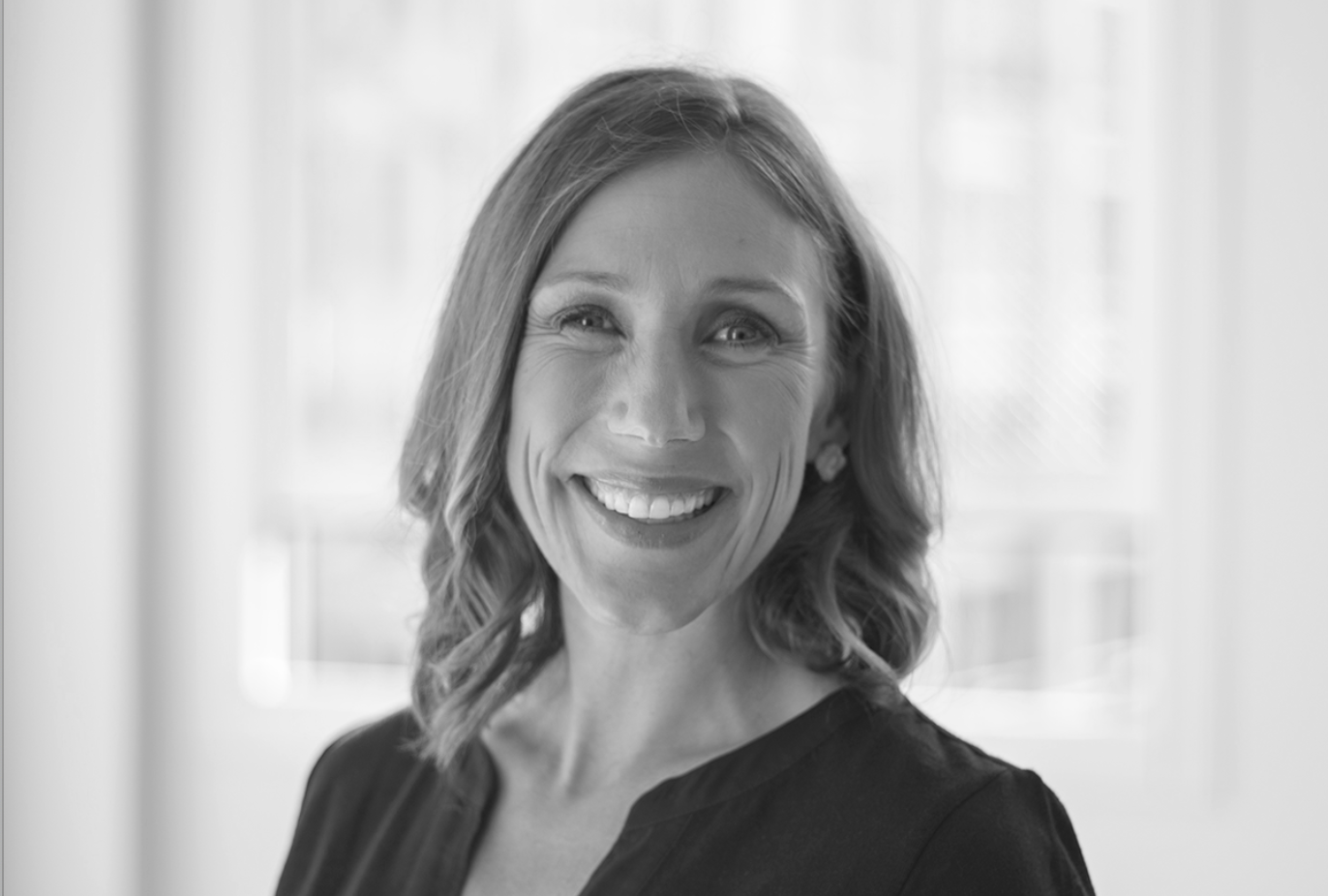
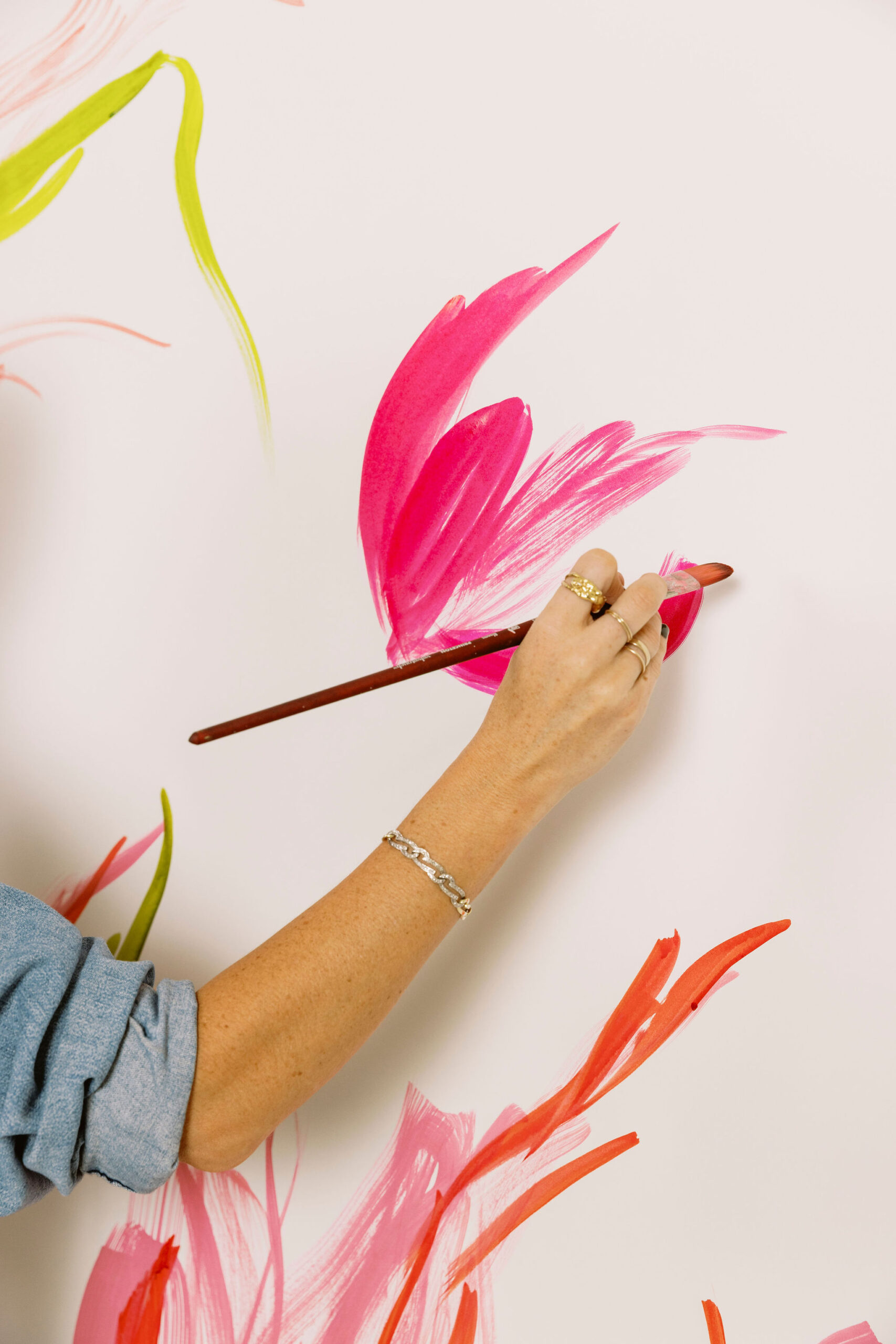
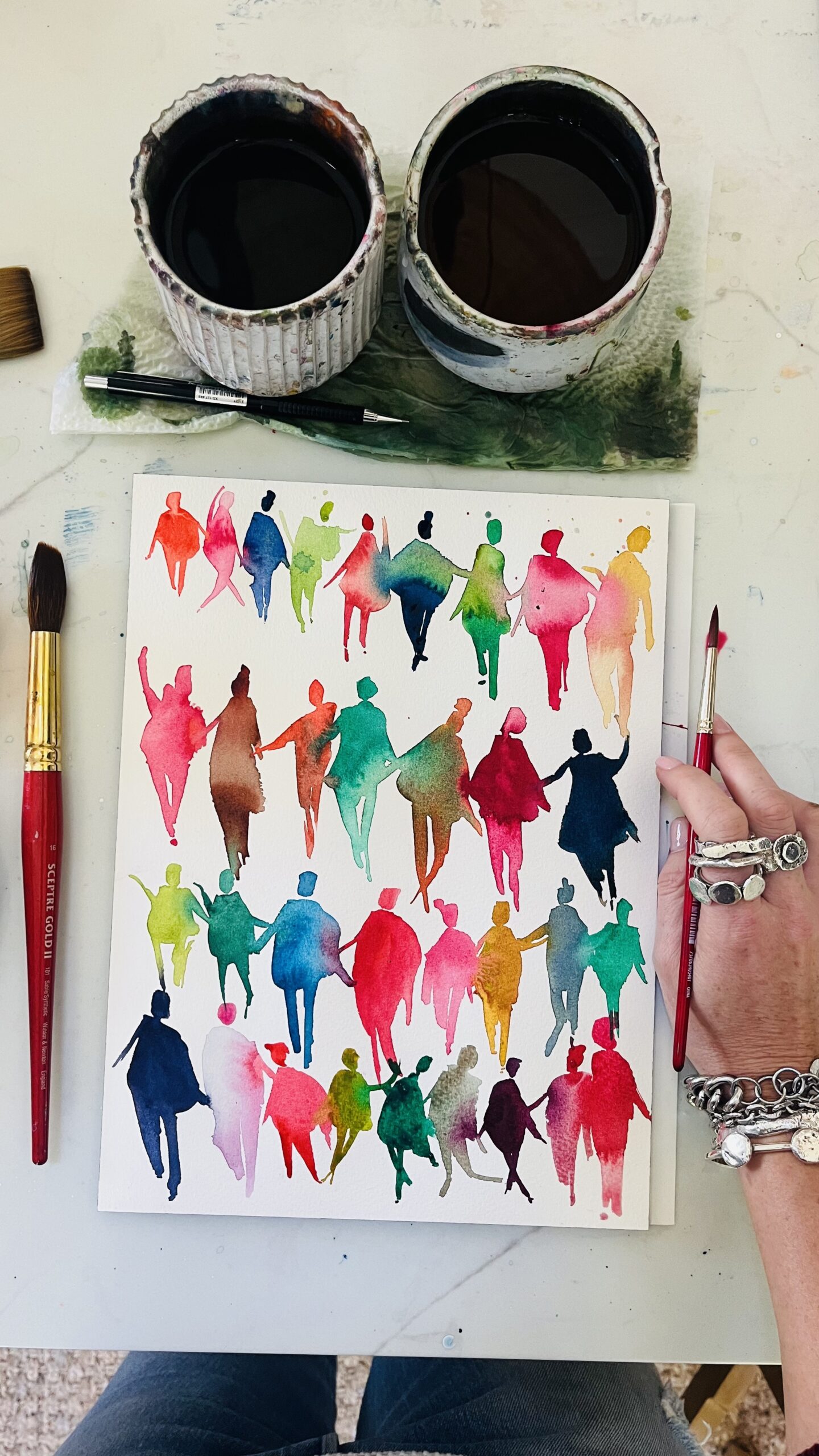
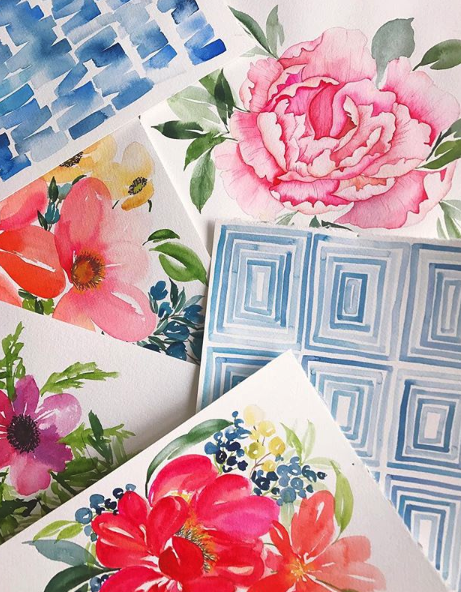
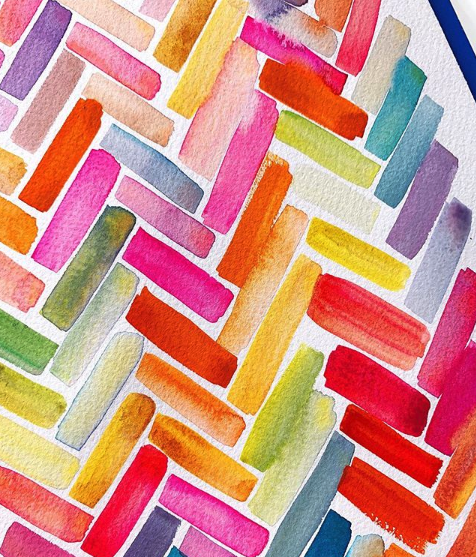
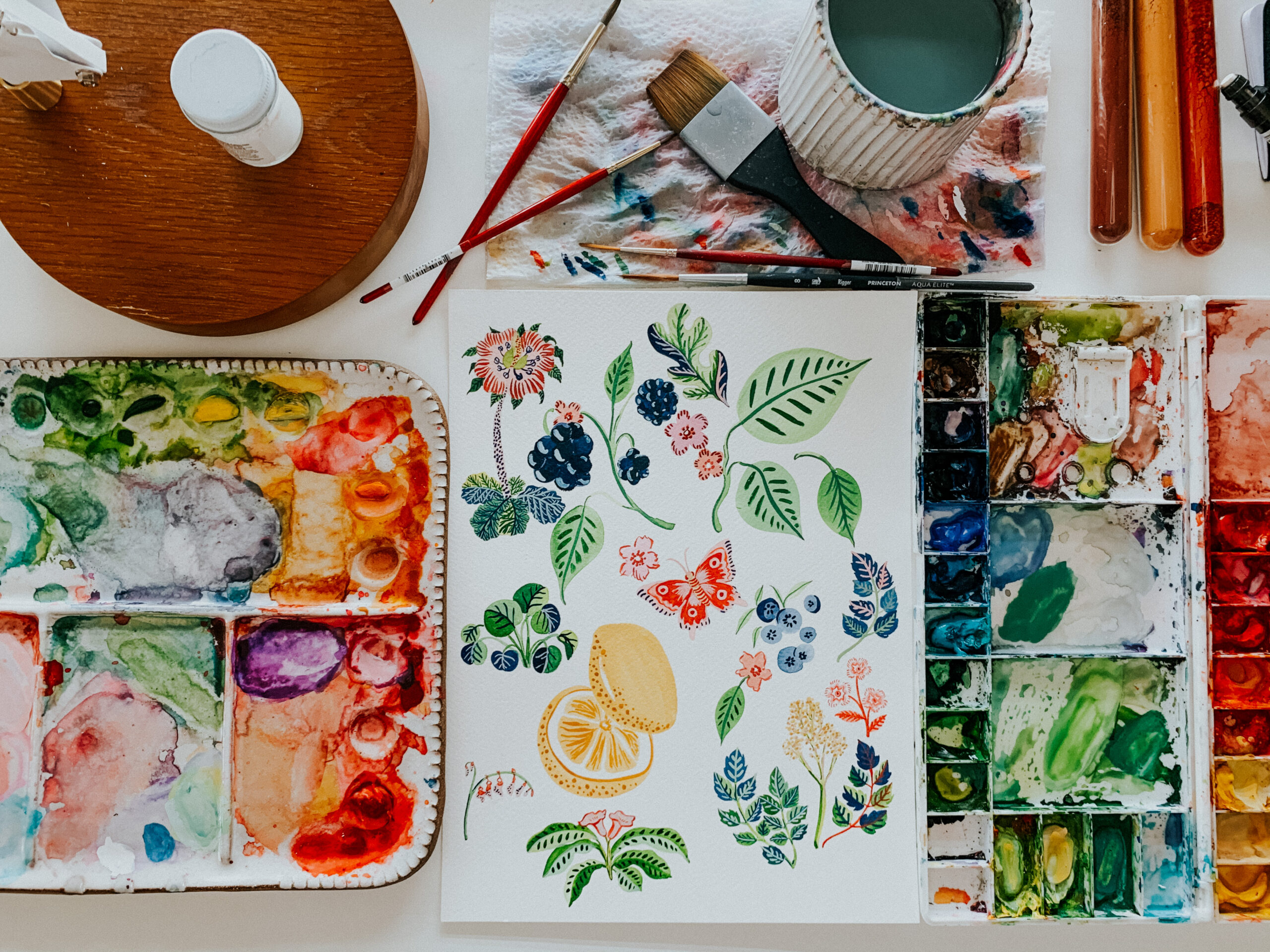
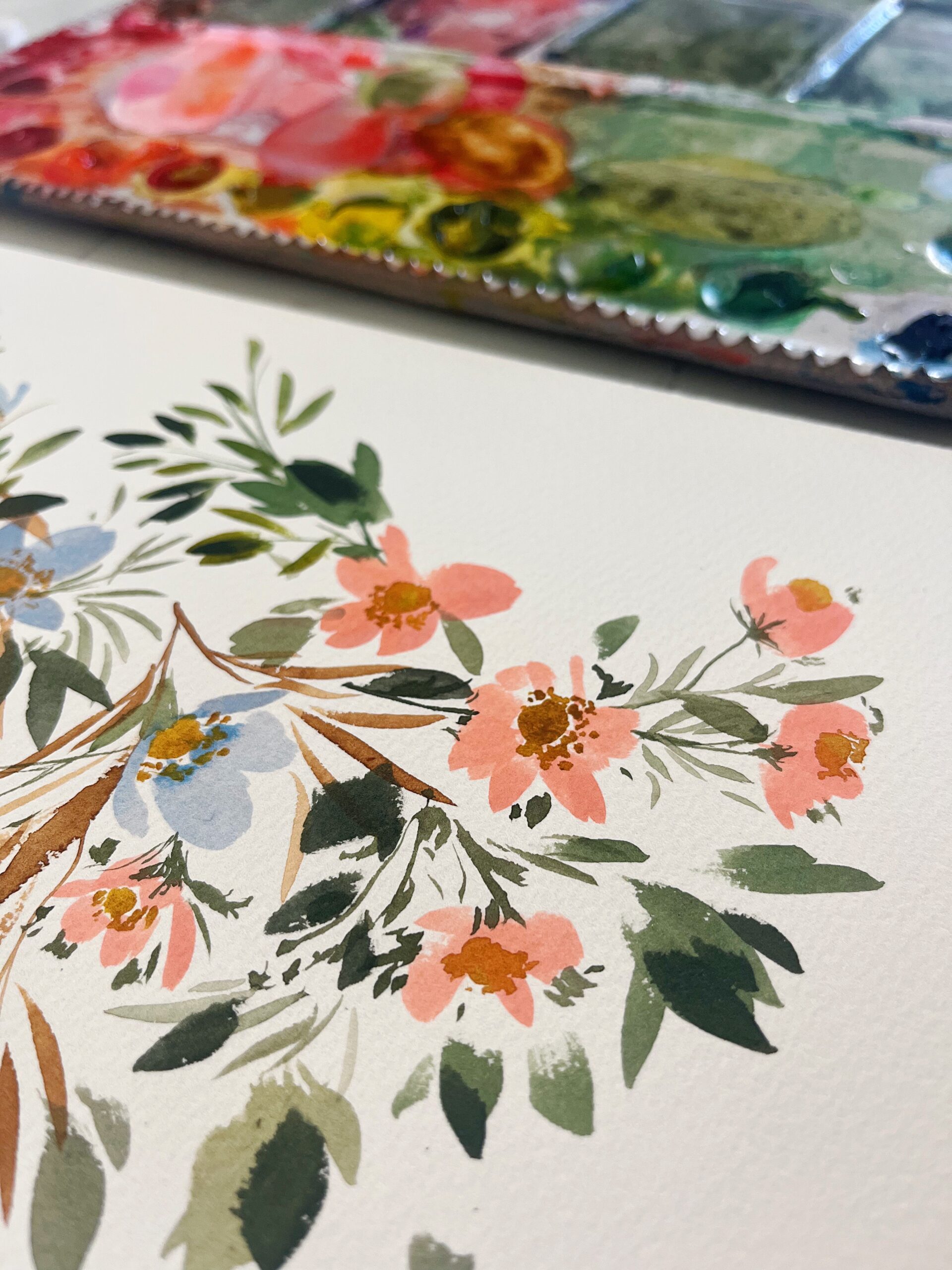
+ show Comments
- Hide Comments
add a comment